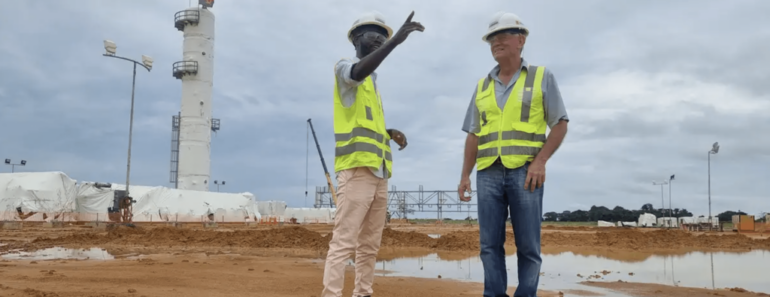[ad_1]
The return of large-scale oil and gas and the exciting ramifications of Angola’s growing downstream sector
Angola, a resource-rich African country, is currently experiencing a large-scale oil and gas comeback, prompting exciting prospects in the growing downstream sector. With the increase in the production of crude oil and natural gas, the country is positioning itself to transform its raw materials into value-added products and thus promote economic development.
One of the main consequences of this return is the emergence of the downstream sector, which encompasses the activities of refining, distribution and marketing of petroleum products. Thanks to massive investment in infrastructure modernization, Angola is going through a major transformation of its downstream sector. This includes building new refineries, storage terminals and pipelines to ensure efficient distribution of petroleum products across the country and overseas.
The growing downstream sector offers many economic opportunities for Angola. In addition to boosting the country’s economic growth, it will also reduce the country’s dependence on imports of refined petroleum products. Eventually, Angola could not only become self-sufficient in terms of its needs for petroleum products, but also become a key exporter in the region.
In addition, this growth of the downstream sector leads to the creation of jobs and the development of local skills. New infrastructure requires a skilled workforce, thus providing employment opportunities for Angolans. In addition, the downstream sector requires specialized skills, which could encourage the training and development of local talent in various fields, such as engineering, logistics and management.
Another important benefit of this development is the diversification of the Angolan economy. Until now, the country has depended mainly on the export of crude oil, but by strengthening its downstream sector, Angola seeks to add value to its natural resources by transforming them into finished products. This will help reduce the country’s vulnerability to fluctuations in crude oil prices on the world market.
However, it is crucial for Angola to ensure that this development is done in a sustainable and responsible way. Environmental protection and efficient resource management are major concerns in the oil and gas industry. Angola should therefore put in place strict regulations to prevent oil spills, minimize the impact on marine and terrestrial ecosystems, and promote the use of clean and renewable energy.
In conclusion, the return of large-scale oil and gas to Angola offers exciting prospects in the growing downstream sector. With massive investments in infrastructure and the development of local skills, the country is well on its way to becoming a key player in the transformation of its raw materials. However, it is essential to ensure that this development takes place in a sustainable and responsible manner, paying attention to the protection of the environment.
→ READ ALSO: a new design is being tested, and we didn’t expect that
→ READ ALSO: BAC 2023- The Diocesan Office of Catholic Education of Dakar (ODEC) records a remarkable success rate of 94.84%
→ READ ALSO: Pixel 8 could offer satellite connectivity, a first on Android
[ad_2]
Mots clés: #Return #LargeScale #Oil #Gas #Exciting #Ramifications #Angolas #Growing #Downstream #Sector
→ READ ALSO : Despite the strike at the JDD, Geoffroy Lejeune will take over as editor-in-chief on August 1
→ READ ALSO : The Surprising Health Benefits of Drinking Green Tea
→ READ ALSO : The new Minister of Health refutes any “conflict of interest” between his functions and those of his wife
Suivez tous les scores en direct ici !
























